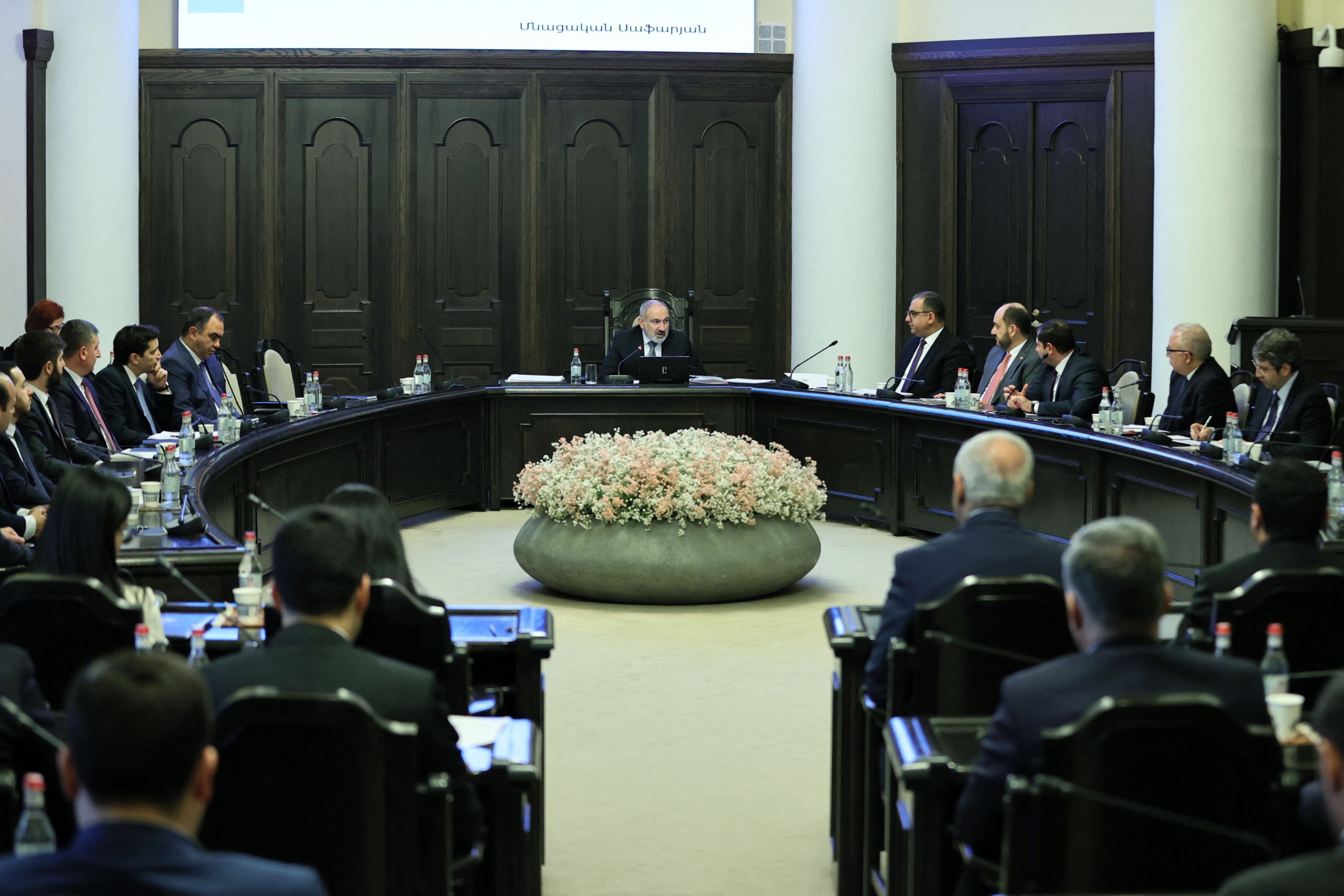Armenia's anti-corruption efforts under scrutiny GRECO report highlights gaps
At the 96th plenary meeting of the Group of States Against Corruption (GRECO) of the Council of Europe (CoE) held in Strasbourg from March 18-22, 2024, a report on Armenia was adopted within the framework of GRECO's fifth assessment round.
The report, prepared by GRECO's evaluation team (GET) during their visit to Armenia on September 11-15, 2023, sheds light on significant gaps in the country's anti-corruption policies and practices, Caliber.Az reports, citing the reports.
Anti-corruption measures
Armenia's efforts to prevent corruption among top executive functions (PTEFs) and law enforcement officials (LEO) have come under scrutiny following a recent evaluation report. The report, aimed at bolstering transparency, integrity, and accountability in public life, has identified significant gaps in the country's anti-corruption framework.
Additionally, the report criticizes Armenia's financial disclosure system, pointing out weaknesses in monitoring and enforcement mechanisms. While some progress has been made in strengthening financial disclosure monitoring, more resources are needed to effectively combat corruption among PTEFs.

Furthermore, the report highlights deficiencies in Armenia's anti-corruption strategy, particularly in the police force. Despite some measures outlined in reform plans, such as capacity-building and integrity education for police officers, there is a lack of dedicated policies specifically targeting corruption prevention and promoting ethical conduct within law enforcement.
“The police lacks a well-developed ethics infrastructure. It does not have a dedicated anti-corruption policy/strategy, nor a Code of Conduct of its own and no risk assessment has been carried out to date,” the report reads.
Critics argue that the fragmented approach to combating corruption, spread across various government bodies, hampers effective oversight and accountability. Calls have been made for the establishment of a dedicated independent oversight body to ensure a unified approach to anti-corruption efforts.
Moreover, concerns have been raised about the transparency of public procurement processes, especially regarding ceremonial expenses of high-ranking officials. Amendments to the Law on Public Procurement have been criticized for limiting access to information on such expenditures, raising questions about accountability and misuse of public funds.
“The GET heard concerns about the transparency of public procurement (closed/classified) processes regarding ceremonial expenses of the President, the Prime Minister, the candidate for Prime Minister and the President of the National Assembly,” the report says.
Transparency and access to information
Armenia's commitment to transparency and access to information is under scrutiny as concerns arise over the implementation and effectiveness of existing laws and regulations. A closer look at Armenia's Freedom of Information Act (FoIA) reveals shortcomings and challenges in practice.
While the legislation outlines procedures for requesting and processing information, civil society organizations (CSOs) and media outlets report difficulties in obtaining timely and complete responses from state agencies. The extended processing times, averaging 35 days according to media sources, hinder the media's watchdog role and limit public oversight.
One of the key criticisms revolves around the broad discretion granted to public authorities to refuse information requests, often citing reasons such as privacy concerns and state secrecy. Recent amendments to the Law on State Secrets further complicate access to information, raising fears of arbitrary restrictions and curtailment of freedom of information.

Moreover, proactive publication practices fall short of expectations, with many official websites lacking comprehensive and up-to-date information as mandated by the FoIA. CSOs argue that certain sectors, particularly those involving public assets and resources like mining and hydropower, remain opaque despite their significance and potential for corruption.
Challenging refusals or inadequate responses proves burdensome for citizens and organizations, with complaints often redirected to the same authorities responsible for the initial decision. Legal appeals, while available, are time-consuming and financially demanding, discouraging individuals from pursuing them except to set precedents.
Moreover, the financial burden associated with pursuing judicial appeals further compounds the challenges faced by civil society organizations seeking transparency and accountability from state authorities.
The difficulties encountered by civil society in challenging FoIA refusals highlight systemic flaws in Armenia's information disclosure mechanisms. These obstacles hinder the ability of citizens and organizations to hold government officials accountable and undermine efforts to promote transparency and good governance.
Lobbying activities
In its evaluation report, GRECO highlights the absence of legislative initiatives to cover lobbying, emphasizing the need for urgent action to address this issue.

Currently, Armenia lacks regulations governing lobbying activities, leaving the legislative process vulnerable to potential influence from third parties without adequate transparency measures in place. The absence of rules on lobbying undermines citizens' trust in politicians and the democratic process.
In line with its established practice, GRECO urges Armenia to introduce detailed rules and guidance on how persons with top executive functions engage with lobbyists and third parties seeking to influence government activities. Additionally, GRECO recommends the disclosure of sufficient information about the purpose of these contacts, including the identities of individuals involved and the specific subjects discussed.
The Group of States against Corruption (GRECO) was established in 1999 by the Council of Europe with the primary aim of monitoring states' compliance with the organization's anti-corruption standards. As an integral part of the Council of Europe's efforts to combat corruption, GRECO plays a crucial role in assessing member states' adherence to established guidelines and promoting measures to strengthen anti-corruption measures.








